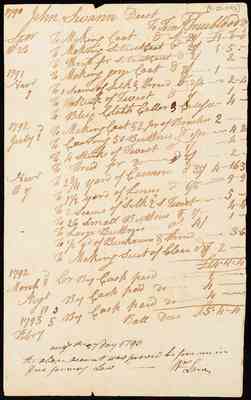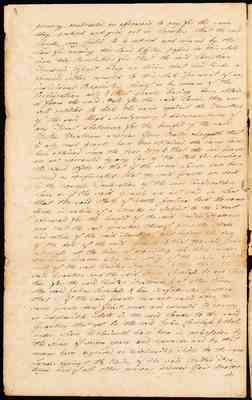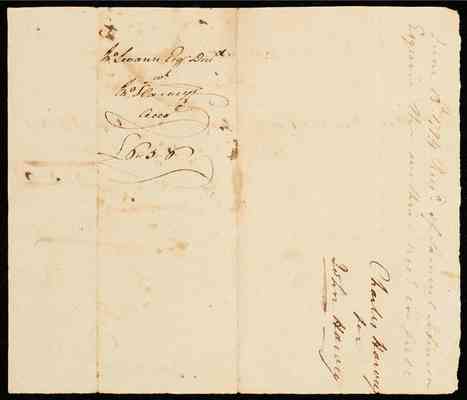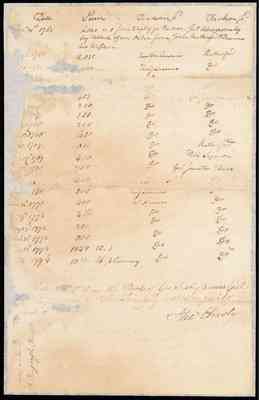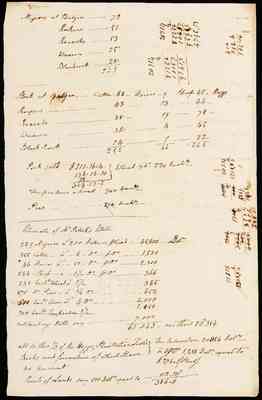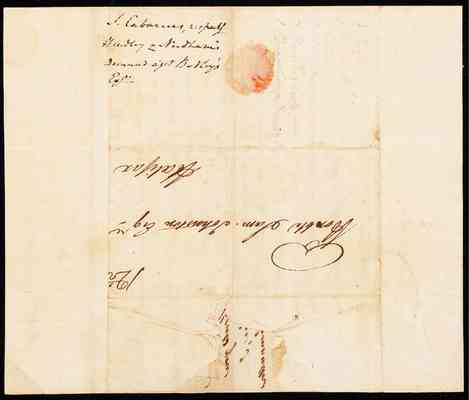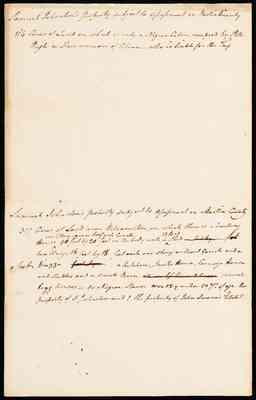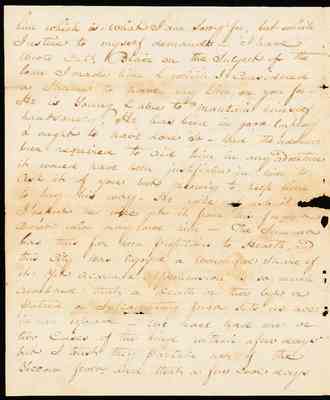About
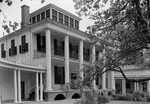
Johnston and Wood family members owned and operated Hayes Plantation on the Albemarle Sound near Edenton, N.C. Members of the Johnston family include Gabriel Johnston (1699–1752), royal governor of the colony of North Carolina and planter; his brother Samuel Johnston (1702–1757), surveyor-general of the colony of North Carolina and planter; Samuel Johnston's son, Samuel Johnston (1733–1816), North Carolina governor, state and federal legislator, delegate to the Continental Congress, judge, lawyer, politician, and planter; and James Cathcart Johnston (1782–1865), son of Samuel Johnston (1733–1816), planter and businessman. Members of the Wood family include Edward Wood (1820–1872), planter and businessman; his wife Caroline Moore Gilliam Wood (1824–1886); and their sons, Edward Wood (1851–1898) and John Gilliam Wood (1853–1920). The Hayes Collection, named after Hayes Plantation, documents the lives of three generations of the Johnston family and two generations of the Wood family whose members owned and operated the plantation. The collection consists of correspondence, diaries, financial materials (account books, receipts, bonds), legal materials (wills, agreements, indentures, deeds of property and land, petitions, judgments, and suits), and photographs that reflect the varied interests and activities of Johnston and Wood family members. These included politics, particularly of the colonial era, the American Revolution, and the early United States; the development and management of several plantations, including Hayes in Chowan County, Caledonia in Halifax County, and Poplar Plains in Pasquotank County, as well as several fisheries, of which Greenfield in Chowan County was most prominent; the slave labor system, including the sale, purchase, and hiring-out of slaves, and the use of slaves as overseers; runaway slaves; merchants and mercantilism; banking and finance; trade and shipping; the homefront during the Civil War; the fishing industry during the Civil War; Reconstruction and the transition to a tenant labor and sharecropping system; contemporary family life and social customs; men's education, including higher education at the College of New Jersey (now Princeton University), the University of Virginia and the University of North Carolina; women's education; health, mental illness, and medical treatments; travel; the economy; and the law, particularly estate administration.
Works
folder 140: January–February 1799
Collaboration is restricted.
48 pages: 0% complete (0% transcribed)
